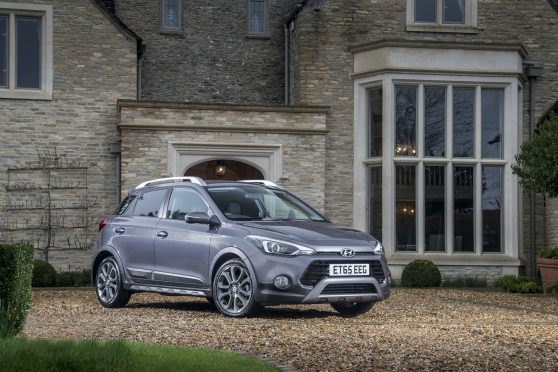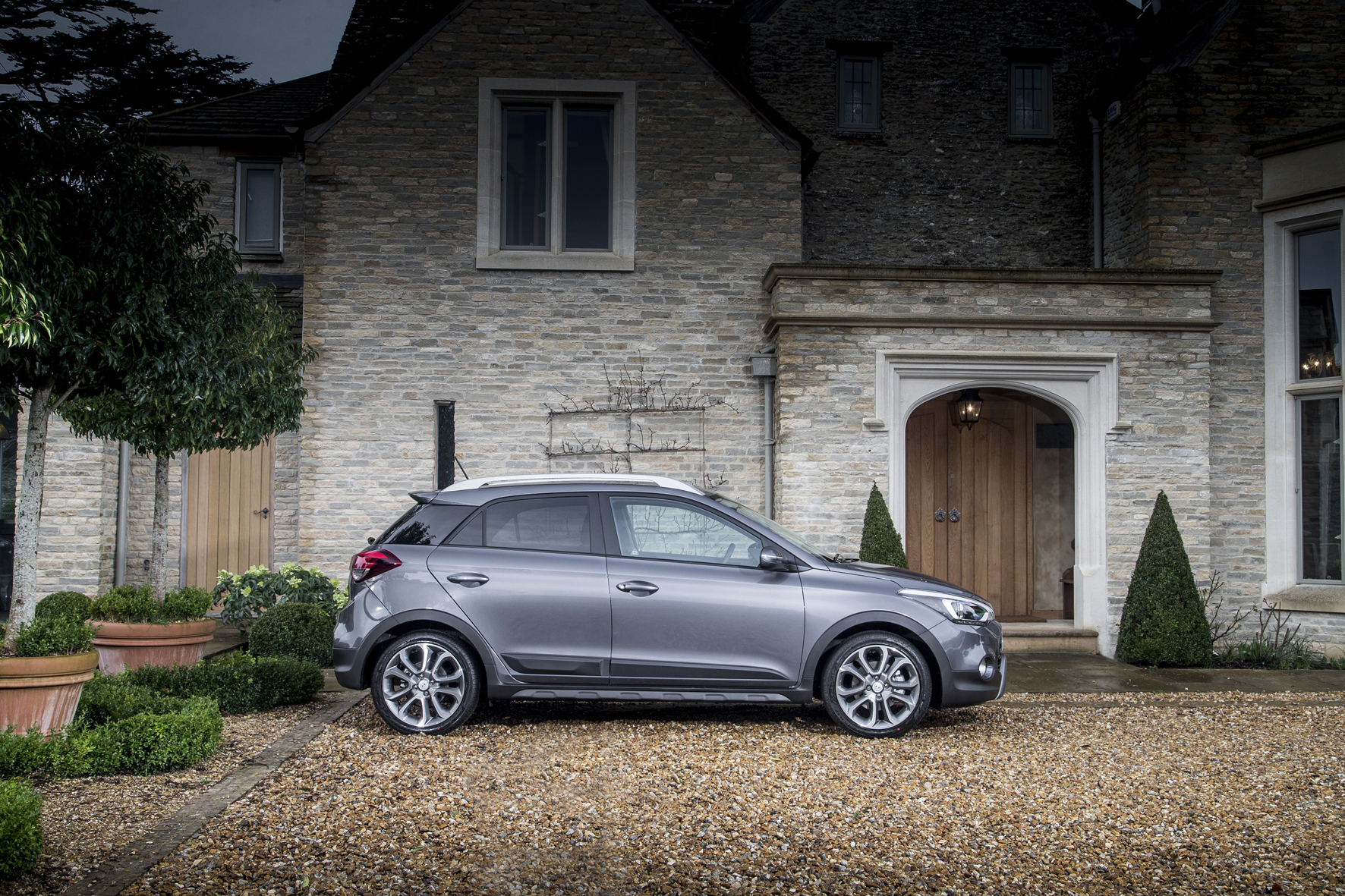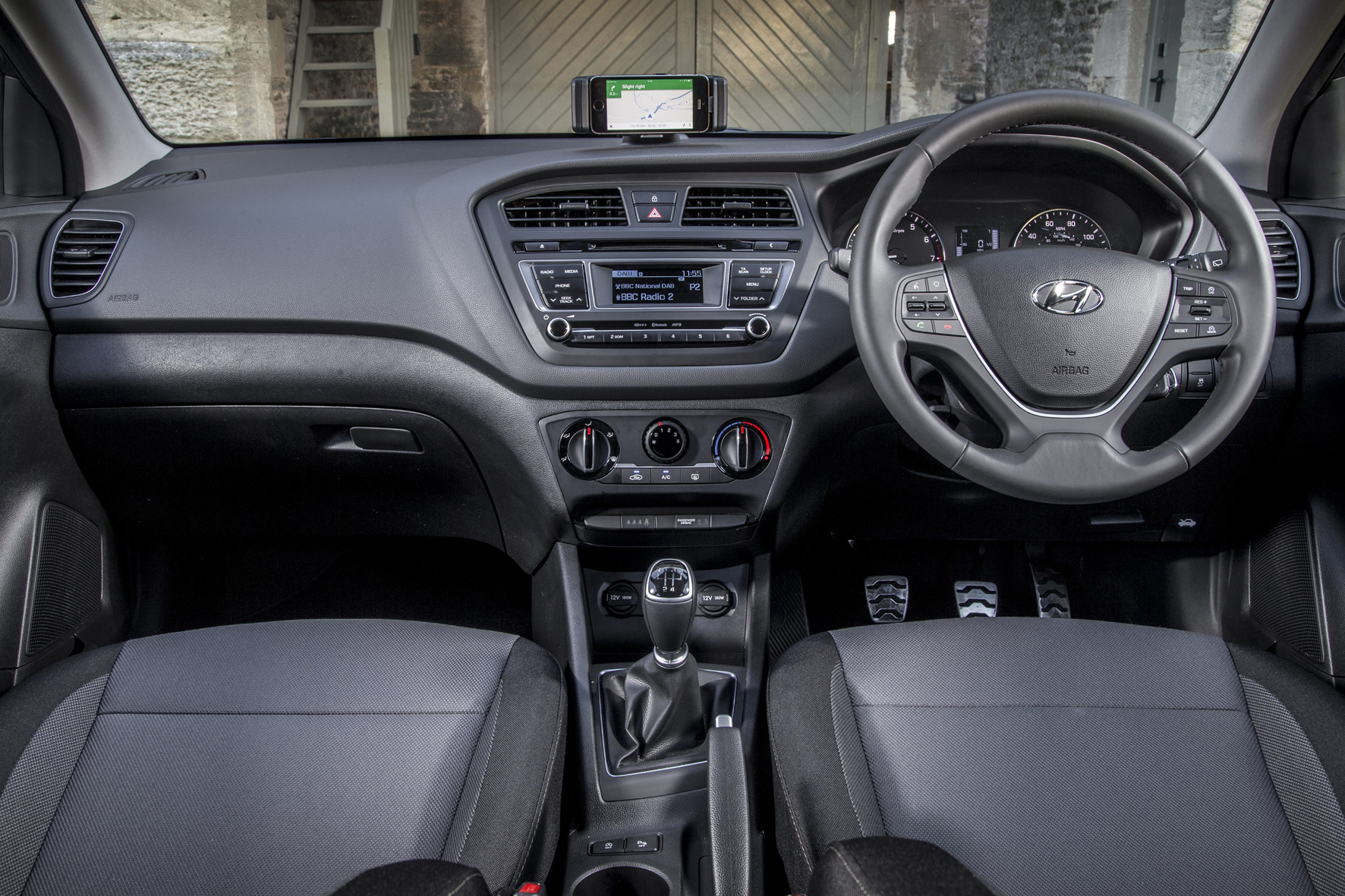Forget those fancy European brands you think you know; when it comes to making a solid private purchase, the Hyundai i20 is about as sensible as you can be – and that’s a good thing.
Smart, well-equipped, good value and offering a slick driving experience it’s hard to fault, but that hasn’t stopped Hyundai giving the i20 an update for 2016.
Most importantly it’s now available with a brand-new three-cylinder turbocharged petrol engine, in two power outputs with impressive claims for fuel consumption and performance.
Equipment upgrades have been made across the range while there’s a whole new model too; the i20 Active is designed to be a compact crossover, with a 20mm increase in ride height, unique bumpers, roof rails and a rear spoiler.
The standard i20 is a neat and inoffensive piece of design, but in the new Active form there’s a little bit more going on. The extra detail in the front bumper gives the front end some additional presence, as does the increased ride height. It’s not as distinct from its conventional sibling as some rival offerings, but it will snare some buyers who find the regular five-door too conventional.
Hyundai’s image has also come a remarkable way in a matter of years. Its badge carries as much weight as many European rivals and in cars like the i20 and Santa Fe it is producing cars with distinction.
There’s no sheet metal changes for 2016 so the i20 keeps its exterior and interior dimensions. Those seated up front should find it easy to get comfortable. Although the seats aren’t huge they offer useful support and the low-set dashboard means the view out is good. In the rear, it’s a little tighter for space with headroom at a premium for those near six feet tall, but legroom is good for the class as is the boot space.
While the Active model has suspension raised by 20mm, its effect on the i20’s behaviour is minimal. The ride quality is good on the vast majority of surfaces, with only particularly poor surfaces creating significant intrusion into the cabin. On the flip side the handling is safe and secure if unremarkable, but the steering is light and accurate plus the raised ride height doesn’t make the i20 Active suddenly heel over in corners.
What really marks out the 2016 i20, however, is that new powerplant. Three-cylinder turbo engines used to be the preserve of Japanese Kei cars but this Hyundai offering is a gem. The on-paper performance might seem modest but this belies how perky it feels. It will rev quite happily without significant engine noise but better still is the generous torque which allows you to be lazy with the gearshifts and still make good progress. Despite that, the official figures are impressive with 58.9mpg combined and 110g/km of CO2, while the 118bhp version feels no quicker on the road.
Go for the i20 Active model and you get 17in alloy wheels, LED daytime running lights, DAB radio and rear parking sensors for your £15,225, and this comes with the 99bhp 1.0-litre turbo engine only.
The regular i20 starts at £10,995 for the S model and even this comes with electrically adjusted and heated door mirrors, height adjustable driver’s seat, reach and rake adjustable steering wheel and an MP3-compatible stereo with USB and auxiliary inputs. The top-spec Premium Nav SE with the top diesel engine is only £17,700, so the i20 is impressive value across the range.
If the i20 Active is big enough to suit your lifestyle then it makes an exceptionally strong case as a private purchase. It’s excellent value for money whatever specification you choose, while the Active model not only combines the best engine choice but also adds in a little more ruggedness. It’s an ideal first car while older folk will find the raised driving position a useful boon too. There are more sparkling drives in the class but for many drivers this is of lesser importance than value and equipment.
THE FACTS
Model: Hyundai i20 Active 1.0 99bhp
Price: £15,225
Engine: 1.0-litre petrol unit producing 99bhp and 126lb/ft of torque
Performance: Top speed 109mph, 0-62mph in 10.9 seconds
Economy: 58.9mpg combined
CO2 rating: 110g/km


